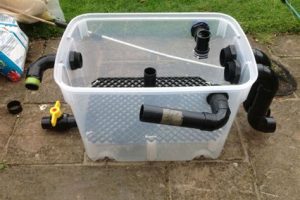Table of Contents
Discover the fascinating world of Black Soldier Fly farming with our DIY guide. Learn how to set up your own sustainable insect farm and harness the incredible benefits of these eco-friendly insects. From breeding techniques to harvesting methods, our comprehensive guide will help you become a successful Black Soldier Fly farmer. Start your journey towards a greener future today!
Black Soldier Fly farming DIY is a fascinating and innovative practice that has been gaining traction in recent years. With its potential to revolutionize waste management, animal feed production, and even sustainable agriculture, this emerging industry is truly captivating. Transitioning from traditional farming methods to rearing these resilient insects may seem daunting, but fear not! In this article, we will explore the ins and outs of Black Soldier Fly farming and provide you with all the necessary information and tips to embark on your very own DIY project. So, buckle up and get ready to delve into the exciting world of Black Soldier Fly farming!
Introduction
Welcome to the fascinating world of Black Soldier Fly (BSF) farming! If you’re interested in sustainable agriculture, waste management, or even just exploring a unique hobby, DIY BSF farming might be for you. This article will guide you through the basics of setting up your own Black Soldier Fly farm, allowing you to harness the incredible benefits these insects offer.
Understanding Black Soldier Flies
Before diving into the practical aspects of DIY BSF farming, let’s take a moment to understand more about these fascinating creatures. Black Soldier Flies (Hermetia illucens) are native to many parts of the world and are known for their efficient waste conversion abilities. They can consume a wide range of organic waste, effectively turning it into nutrient-rich compost and protein-rich larvae.
The Life Cycle of Black Soldier Flies
Understanding the life cycle of Black Soldier Flies is crucial for successful farming. The adult flies are relatively harmless as they do not bite or sting. Their primary purpose is to mate and lay eggs. Once the eggs hatch, the larvae, commonly referred to as BSF grubs, go through several stages of growth before pupating and eventually emerging as adult flies.
Setting Up Your Black Soldier Fly Farm
Creating a suitable environment for your Black Soldier Fly farm is essential for optimal growth and reproduction rates. Firstly, consider the size of your farm. It can be as small as a few buckets or as large as a dedicated shed; the choice is yours. Ensure proper ventilation and maintain a consistent temperature range of 80-100°F (27-38°C) to encourage optimal breeding conditions.
The Ideal Substrate
The substrate, or the material on which the Black Soldier Flies lay their eggs, plays a crucial role in farming success. A mix of carbon-rich and nitrogen-rich materials such as sawdust, wood chips, and food waste works well. Ensure the substrate remains moist but not wet, as excess moisture can lead to issues like mold growth or drowning of larvae.
Feeding BSF Larvae
Black Soldier Fly larvae are highly efficient at consuming organic waste. They can eat a wide variety of materials, including fruit and vegetable scraps, coffee grounds, and even livestock manure. However, avoid feeding them meat, dairy products, or oily substances. It’s important to provide a consistent food source for the larvae to ensure their healthy growth.
Harvesting and Utilizing the Compost
Once the larvae have finished feeding, they will naturally migrate away from the food source towards a drier area to pupate. At this point, you can harvest the compost-rich material for use in your garden or as a soil amendment. The remaining larvae can be used as feed for livestock, reptiles, or even as fishing bait.
Benefits of Black Soldier Fly Farming
Black Soldier Fly farming offers numerous advantages, both on an individual and environmental level. Firstly, it allows for effective waste management by converting organic waste into valuable resources. Additionally, the harvested compost is rich in nutrients, promoting plant growth and reducing the need for chemical fertilizers. Furthermore, BSF larvae are a sustainable source of protein, potentially replacing traditional animal feed ingredients.
Joining the Community
As you embark on your DIY Black Soldier Fly farming journey, consider joining online communities or forums dedicated to this unique practice. Sharing experiences, tips, and troubleshooting with fellow enthusiasts can greatly enhance your learning process and provide ongoing support throughout your farming endeavor.
Conclusion
Black Soldier Fly farming DIY is a rewarding and eco-friendly hobby that holds immense potential for waste reduction and resource generation. By understanding the life cycle, setting up a suitable environment, and providing a consistent food source, you can witness the incredible growth and transformation of these remarkable insects. Embrace the benefits of Black Soldier Fly farming and become a part of the sustainable agriculture movement!
Introduction to Black Soldier Fly Farming DIY
Black Soldier Fly Farming DIY is a practice that involves rearing black soldier flies in a controlled environment for various purposes. This eco-friendly approach offers a sustainable solution for waste management, animal feed production, and potential income generation. By understanding the basics of setting up a black soldier fly farm, individuals can embark on a rewarding and environmentally conscious venture.
Benefits of Black Soldier Fly Farming DIY
Embarking on a black soldier fly farming DIY project brings numerous benefits. Firstly, these flies are highly efficient in consuming organic waste, reducing the need for traditional waste management methods. Additionally, black soldier fly larvae are protein-rich, making them an excellent source of feed for livestock and aquatic animals. Lastly, by selling the larvae or its byproducts, individuals can create an additional income stream.
Setting Up a Black Soldier Fly Farm
To establish a successful black soldier fly farm, several key factors should be considered. These include acquiring the appropriate breeding containers, providing suitable substrate for egg-laying, ensuring optimal temperature and humidity levels, and maintaining proper hygiene. Creating an ideal environment for the black soldier flies will ensure their healthy reproduction and growth.
Managing the Life Cycle of Black Soldier Flies
Understanding the life cycle of black soldier flies is crucial for effective management. Female flies lay eggs on the substrate, from which larvae hatch and feed on organic waste. The larvae undergo several instar stages, during which they grow and eventually pupate. After pupation, adult black soldier flies emerge, mate, and the cycle repeats. By managing each stage and providing adequate nutrition, the black soldier flies can flourish.
Feeding Black Soldier Fly Larvae
Black soldier fly larvae require a balanced diet for optimal growth and development. They can consume a wide variety of organic waste materials such as fruit waste, vegetable scraps, and manure. However, it is essential to ensure that the waste is properly processed to remove any potential harmful substances. Monitoring and adjusting the larvae’s feeding habits will help maintain their health and maximize nutrient content.
Harvesting and Using Black Soldier Fly Larvae
Harvesting black soldier fly larvae can be done by separating them from the residue or using harvesting techniques such as light and gravity separation. The harvested larvae can be used as a protein-rich feed for poultry, fish, or even as a sustainable alternative protein source for human consumption. Additionally, the residue or frass left behind by the larvae can be utilized as a nutrient-rich organic fertilizer.
Managing Disease and Pest Control
Like any farming venture, black soldier fly farms may face challenges related to disease and pest control. Maintaining cleanliness and hygiene, ensuring proper ventilation and waste management, and regularly monitoring for signs of disease or pest infestations are essential practices. Implementing organic remedies, such as neem oil or biological control agents, can help mitigate potential issues.
Scaling Up and Commercializing
Once individuals have mastered the basics of black soldier fly farming DIY, scaling up the operation or exploring commercial opportunities may be considered. This can involve expanding the farm size, optimizing breeding techniques, developing value-added products, and establishing partnerships with relevant industries. Careful planning and market research will be crucial in successfully transitioning into a larger-scale operation.
Black Soldier Fly Farming DIY: A Professional Perspective
As a professional in the field of entomology and sustainable agriculture, I would like to share my point of view on black soldier fly farming as a do-it-yourself (DIY) endeavor. This innovative practice has gained significant attention in recent years due to its potential to address various environmental challenges while offering economic benefits. However, it is essential to approach black soldier fly farming with a professional mindset and adhere to certain principles to ensure its success.
1. Understanding the Biology: When engaging in black soldier fly farming, it is crucial to have a deep understanding of the biology and life cycle of these insects. This knowledge will help you create appropriate conditions for their growth, reproduction, and efficient waste processing. Being well-versed in their behavior and nutritional requirements will enable you to optimize your farm’s productivity.
2. Proper Feeding and Waste Management: Black soldier fly larvae are voracious eaters, capable of consuming a wide range of organic waste materials. However, it is vital to provide them with a balanced diet that meets their nutritional needs. Ensuring a proper mix of waste materials, such as kitchen scraps, agricultural residues, and food industry byproducts, will enhance their growth and development. Additionally, efficient waste management practices, such as regular removal of frass (insect excrement), will maintain a healthy environment for the larvae to thrive.
3. Hygiene and Disease Prevention: Maintaining a clean and hygienic environment is paramount in black soldier fly farming. Regular cleaning of containers, equipment, and farming areas will prevent the buildup of pathogens and potential disease outbreaks. Implementing strict biosecurity measures, such as controlling access to the farm and minimizing cross-contamination, will further safeguard the health of the larvae and the overall operation.
4. Monitoring and Optimization: Continuous monitoring of key parameters, such as temperature, humidity, and feeding rates, is essential to ensure optimal conditions for the black soldier fly larvae. Regular checks on their growth rate, overall health, and reproduction will allow you to make necessary adjustments and improvements to maximize the efficiency and productivity of your farm.
5. Collaboration and Knowledge Sharing: Engaging with other black soldier fly farmers, researchers, and professionals in the field is crucial to stay updated on best practices, emerging technologies, and potential challenges. Collaborative efforts and knowledge sharing contribute to the advancement of this farming method and facilitate the development of sustainable solutions for waste management and animal feed production.
In conclusion, black soldier fly farming DIY can be a rewarding and environmentally beneficial endeavor when approached with a professional mindset. By understanding the biology of these insects, implementing proper feeding and waste management practices, maintaining hygiene, monitoring key parameters, and collaborating with others, you can contribute to the success of this innovative agricultural practice. Let us embrace the potential of black soldier fly farming and work towards a more sustainable future.
Thank you for visiting our blog and taking the time to learn about Black Soldier Fly Farming DIY. We hope that the information provided has been both informative and inspiring, and that it has sparked your interest in this fascinating and sustainable practice.
Black Soldier Fly Farming DIY offers countless benefits, not only for individuals but also for the environment. By harnessing the incredible capabilities of these tiny creatures, we can contribute to a more sustainable future. Whether you are an enthusiast looking to start your own farm or simply curious about this innovative method, there are several key points to consider.
First and foremost, it is crucial to understand the life cycle and behavior of the Black Soldier Fly. These insects play a vital role in waste management and can efficiently convert organic waste into nutrient-rich compost and protein-rich larvae. By creating a suitable environment for their reproduction and growth, you can significantly reduce food waste while producing a valuable resource for animal feed or organic fertilizer.
Additionally, successful Black Soldier Fly farming requires careful attention to factors such as temperature, humidity, and feeding practices. Creating the optimal conditions for the insects to thrive ensures maximum productivity and effectiveness. With proper planning and regular monitoring, you can establish a self-sustaining colony that will continue to benefit you and the environment for years to come.
In conclusion, Black Soldier Fly Farming DIY presents a unique opportunity to make a positive impact on our planet. By implementing this sustainable practice, you can actively contribute to waste reduction, food production, and environmental conservation. We encourage you to further explore this exciting field and discover the numerous possibilities it holds.
Thank you once again for visiting our blog, and we hope to see you again soon as we continue sharing valuable insights and resources on Black Soldier Fly Farming DIY and other sustainable practices. Together, we can create a greener and more sustainable world.
Video Black Soldier Fly Farming Diy
1. What is Black Soldier Fly farming DIY?
Black Soldier Fly farming DIY refers to the practice of raising and breeding Black Soldier Flies (Hermetia illucens) for various purposes, such as composting, animal feed production, or even as a sustainable source of protein for human consumption. It involves setting up a system to attract and breed these flies, providing them with suitable conditions for reproduction, and managing their larvae for the desired end use.
2. How do I start a Black Soldier Fly farm?
To start a Black Soldier Fly farm, you will need to:
– Set up a suitable breeding area: This can be done using containers, such as plastic bins or barrels, with proper ventilation and drainage.
– Create a fly attractant: Black Soldier Flies are attracted to decomposing organic matter, so providing a suitable food source like kitchen scraps or manure is essential.
– Introduce Black Soldier Fly eggs or larvae: You can either purchase eggs or larvae from a reputable supplier or try attracting wild flies to lay their eggs in your breeding area.
– Manage the larvae: Once the larvae hatch, they need to be provided with optimal conditions, including temperature, moisture, and adequate food. Regular monitoring and maintenance are necessary to ensure their healthy growth.
3. What are the benefits of Black Soldier Fly farming?
There are several benefits to Black Soldier Fly farming:
– Waste reduction: Black Soldier Fly larvae are voracious eaters and can efficiently consume organic waste, such as food scraps or agricultural byproducts, reducing the amount of waste going to landfills.
– Nutrient-rich compost: After the larvae have processed the organic waste, their castings, known as frass, can be used as a nutrient-rich soil amendment.
– Animal feed production: Black Soldier Fly larvae are an excellent source of protein and can be used as feed for livestock, poultry, or fish, reducing the reliance on traditional feed sources like soy or fishmeal.
– Sustainable protein production: The larvae themselves can be harvested and processed into a highly nutritious and sustainable protein source for human consumption, offering a potential solution to food insecurity and reducing the environmental impact of traditional livestock farming.
4. Are there any challenges in Black Soldier Fly farming DIY?
While Black Soldier Fly farming can be rewarding, there are a few challenges to consider:
– Temperature and climate: Black Soldier Flies require specific temperature ranges for optimal breeding and larval development. Extreme temperatures or unsuitable climates may hinder their growth and reproduction.
– Odor management: As the flies are attracted to decomposing organic matter, there can be a distinct odor associated with Black Soldier Fly farms. Effective odor management strategies, such as proper ventilation or using carbon filters, may be necessary.
– Initial setup costs: Setting up a Black Soldier Fly farm may require some investment in containers, equipment, and suitable fly attractants. However, these costs can often be recouped through the various benefits and potential income streams.
5. Is Black Soldier Fly farming DIY legal?
Black Soldier Fly farming is generally legal, but regulations and guidelines regarding its practice may vary depending on your location. It is essential to check local laws, permits, and requirements related to insect farming and waste management before starting your own Black Soldier Fly farm.






